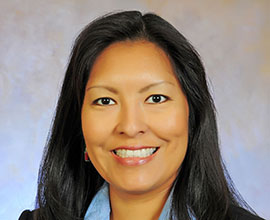White House Picks 4 for Arizona Federal Court

Cronkite News
WASHINGTON – The White House Thursday nominated four people to vacant judgeships on the U.S. District Court of Arizona, apparently clearing the way for a long-stalled fifth nomination to proceed in the process.
Maricopa County Superior Court Judge Douglas Rayes of Scottsdale and U.S. Magistrate Judge Steven Logan, Diane Humetewa and John Tuchi, all of Phoenix, join Rosemary Marquez, whose nomination has languished for more than two years without a hearing.
In a statement Thursday, Sen. John McCain, R-Ariz., urged the Senate Judiciary Committee to “consider these five very capable nominees as soon as possible and allow the full Senate to swiftly confirm them.
“The recent judicial vacancies in Arizona have created an unsustainable situation for the court and are a serious impediment to the administration of justice for the people of Arizona,” McCain’s statement said.
The court has one of the heaviest workloads in the country and was short of judges even before then-Chief Judge John Roll was killed in the 2011 shooting that wounded Rep. Gabrielle Giffords. Only one seat on the bench has been filled since then.
An “unprecedented” six of the court’s 13 allotted judgeships are currently vacant, said Brian Karth, the clerk for the district. News of the nominations was spreading quickly through the court, said Karth, adding that they offer hope of a “welcome relief … something we’ve been looking forward to for a long time.”
With Marquez’s nomination in limbo since June 23, 2011, the judges on the district court have been “shouldering a very heavy load,” said Larry Hammond, a defense attorney who handles cases in the district.
“This is, and has been for many years, one of the busiest districts in America,” said Hammond, adding that the combination of immigration cases, tribal criminal cases from the reservations and border crimes “makes this a hugely busy district even under the best circumstances.”
Federal court management statistics in March reported that Arizona had the fourth-highest number of criminal felony filings in the U.S. last year, at 392, and the sixth-highest number of total filings, at 822. The same report said the court had gone more than 30 months with vacant judgeships.
News of the nominations would cause “elation among people who litigate in federal court in Arizona, and certainly among the sitting judges and senior judges,” Hammond said.
The delay on Marquez’s nomination has been “disturbing and puzzling,” said Gaetano Testini, president of Los Abogados Hispanic Bar Association. The delay came as “the decline in Latino judges has reached an epidemic level,” he said, bringing a drop in representation that is out of step with the state’s population and those before the courts.
Testini said McCain’s call for the confirmation of Marquez along with the four other nominees relieved some of his frustration.
Sonia Martinez, president of the Native American Bar Association of Arizona, said her organization hopes for quick confirmation of all the nominees, but especially Humetewa, who would become the first Native American woman to become a federal judge.
“It is a historic nomination,” Martinez said. “She was actually the first Native American female U.S. Attorney here in Arizona.”
She said Humetewa has worked in state, city, federal and tribal courts, which provides “special and unique insight into how all the governments work together and mesh together.” That makes her an “excellent choice,” Martinez said.
Hammond praised the diversity of the nominees, who he said “virtually everyone would say are among the most-qualified.”
Sen. Jeff Flake, R-Ariz., does not comment on judicial nominations, an aide said in an email Thursday.















